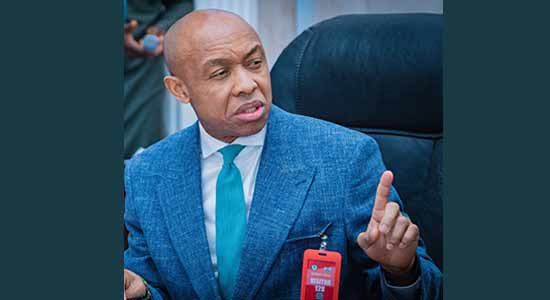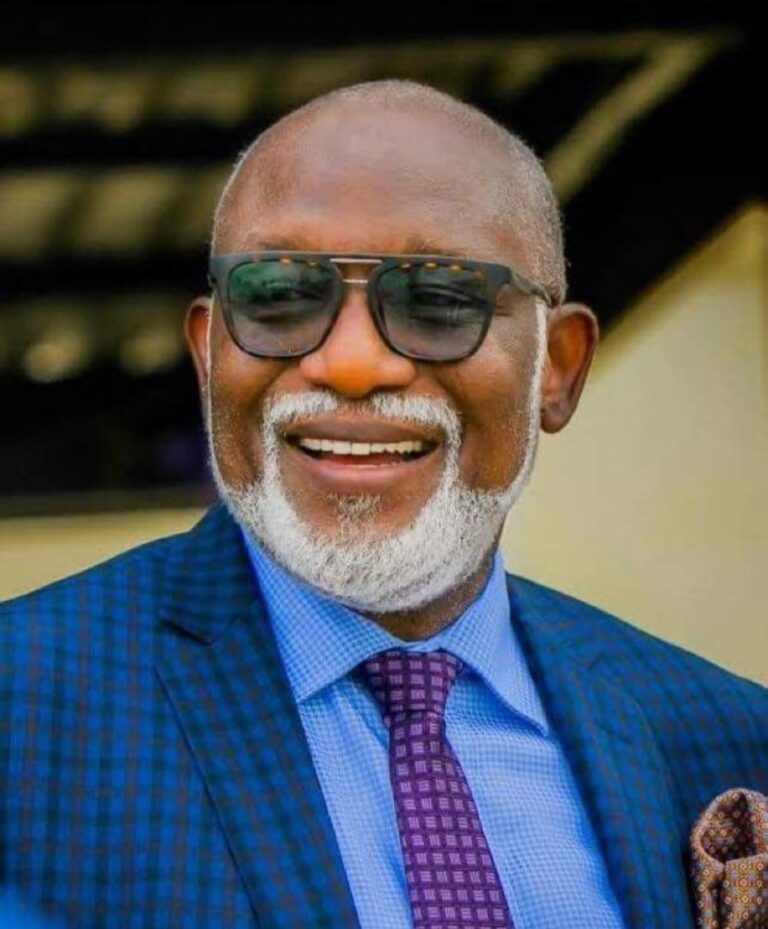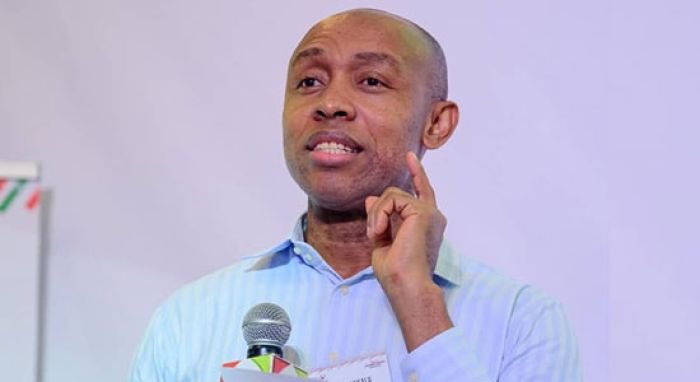
By Chidi Anselm Odinkalu
“A Judge shall avoid developing excessively close relationship with frequent litigants – such as government ministers or their officials, municipal officials, police prosecutors in any Court where the Judge often sits, if such relationship could reasonably create an appearance of partiality.”
Rule 2.8, Revised Code of Conduct for Judicial Officers in Nigeria (2016)
Sylvanus Nsofor was a little known Justice of the Court of Appeal when he breathed oxygen into Muhammadu Buhari’s political aspirations with his dissent in the presidential election petition in 2007. Eight years earlier, he had launched a unique career in the history of political litigation in Nigeria.
The case arose from the election into the office of Chairman of the Obio/Akpor Local Government Area (LGA) in Rivers State in Nigeria’s Niger Delta on 12 December 1998. Cyprian Tasie Wike was the candidate of the All Peoples’ Party (APP). Cyprian Chukwu flew the flag of the Alliance for Democracy (AD). After screening aspirants on 24 November, 1998, the Peoples’ Democratic Party, (PDP) settled on Ezenwo Nyesom Wike as its candidate.
At the time, local elections were conducted by the Independent National Electoral Commission (INEC) and the PDP initially submitted Nyesom Wike’s name as their candidate. However, sometime before election day, the party substituted his name with Samuel Rogers Icheonwo. When it announced the results, INEC declared the candidate of the PDP as the winner with 40,370 votes, beating the candidate of the AD into second place with 11,441 votes.
Nyesom Wike sued, claiming that INEC had announced Icheonwo as winner when he was not lawfully sponsored by any party in the contest. The election petition tribunal struck out the petition, holding that it lacked jurisdiction “to resolve the issue as to who was sponsored by PDP.”
Nyesom Wike appealed. In his judgment on behalf of a three-person panel of the Court of Appeal on 6 March 1999, Sylvanus Nsofor nullified the result announced by the INEC and ordered a re-run of the election with Nyesom Wike as the candidate of the PDP. Wike duly won the re-run to emerge as the Chairman of the Obio/Akpor LGA.
Since then, Nyesom Wike’s political trajectory has been attended by what appears to be an unusual coincidence of mutually beneficial intercourse with the judiciary. In 2008, he became Chief of Staff to a Governor of Rivers State whose emergence rested on a somewhat improbable piece of judicial machination.
After a stint as Minister of State for Education, Wike emerged in 2015 as the candidate of the PDP for the governorship of Rivers State. Following the election on 11-12 April 2015, the INEC declared him as winner, ahead of Dakuku Peterside of the All Progressives Congress (APC). Peterside petitioned challenging the result declared by INEC. The tribunal granted his petition and initially set aside the result. The Court of Appeal agreed with the trial tribunal.
On 12 February 2016, the Supreme Court set aside the judgment of the Court of Appeal on a specious technicality and restored Nyesom Wike as duly elected. The author of the Supreme Court judgment was Kudirat Kekere-Ekun.
In the past week, she and Nyesom Wike resumed mutual acquaintance. In the intervening nine years, Kekere-Ekun had risen to become Chief Justice of Nigeria (CJN), while Wike emerged in August 2023 as Minister of the Federal Capital Territory. The venue was the flag-off of the construction by the Minister of 40 units of judicial housing in Abuja.
This was the latest chapter in Wike’s durable track-record as Nigeria’s most prolific judicial benefactor.
As Governor of Rivers State, he gave 41 Range Rover Sports Utility Vehicles (SUVs) to judges in the state. Customary Court judges were not left out. He gave them 29 Renault SUVs, while complaining about the “unfortunate the unwillingness of the judiciary in Nigeria to seek true independence to discharge their functions.”
The irony was clearly lost on him.
In 2020, Wike donated 24 luxury duplexes to judges in Rivers State and reportedly “handed out $300,000 in cash to judges who preferred to build their own houses.” It was presumably tax-free. Then CJN, Tanko Muhammad, slavishly “applauded his generosity saying the gifts spoke of the ‘love the Rivers State governor has for the judiciary.’”
The love was fully requited.
The previous year, in January 2019, the judiciary had made Wike’s re-election an electoral non-event when it disqualified the opposition APC from fielding any candidate against him. Neutral observers did not need to wonder whether all the investment in the judiciary was without mutual benefit.
Before leaving office as Governor in 2023, Wike launched yet another construction of quarters for judges also in Rivers State, this time on a site “where his administration recently demolished flats initially belonging to Bayelsa State.”
This gubernatorial generosity to the judiciary went beyond the state level. Former presidential candidate, Omoyele Sowore, reported that as Governor, Nyesom Wike awarded a contract to former President of the Court of Appeal (PCA), Zainab Bulkachuwa, “to build the Court of Appeal in Port Harcourt”, the capital of Rivers State. In return, he said “anything Wike wanted was granted before he asked.” Neither Wike nor Bulkachuwa has thought it fit to issue a denial.
Now, as Minister of the Federal Capital Territory, Wike’s political generosity has become fully federalized under the judicial benediction of yet another CJN. At the launch of the 40 new units of judicial housing in Abuja this past week, the Minister had in attendance both the CJN and the PCA. Presumably keen to impress such high judicial presence, Wike serenaded them with testimony as to how he summarily revoked the land previously allocated to construction conglomerate, Julius Berger, in order to make it available for building suitable judicial digs.
The high judicial figures present looked nothing if not suitably impressed, but the Minister was only getting started. According to him, it was important “to build houses for judges so they would not be susceptible to temptations from unscrupulous politicians.”
No one around had the presence of mind to ask him to look in the mirror.
This has been described charitably as convenient overreach. A better description for it will be judicial subornation. In full public glare, the two senior-most judges in the country looked rather giddy as they advertised an undisguised breach of the Code of Conduct for Judicial Officers, whose effectiveness depends on their combined leadership and example.
There is no political litigant in the country more prolific than the current Minister of the FCT. He has an almost extra-terrestrial ability to normalise outcomes that defy all cannons of lawful judicial enterprise. If anyone fits the description of the prohibition in Rule 2.8 of the Judicial Conduct, it is Minister Wike. Yet, for him, the Chief Justice of Nigeria is happy to retrench that same Code of Conduct.
It was not supposed to be like this.
Jerome Udoji, one of Nigeria’s best known lawyers and public servants, was born in Ozubulu in present day Anambra State around 1912. Udoji was also the first indigenous District Officer in the colonial civil service. He ended his civil service career Chief Secretary to the government of the Eastern Region under the military coincidentally in 1967, the same year in which Wike officially was born.
When he got the opportunity to undertake a retrospective on his public tour of duty in 1995, fifteen years before he died in 2010, Udoji chose to issue his memoirs with the title “Under Three Masters.” The three masters whom he served, of course, were colonial administrators, post-colonial civilian politicians, and their military usurpers.
Each set of masters was not without exertions in seeking judicial subservience. Until now, they had usually encountered judicial resistance. Under the current dispensation, however, it is almost as if government has a minister responsible for judicial subornation. To many, the leading judges have simply become Wiked and the country has a CJN who appears happy to have the judicial branch fully Nyesomized.
A lawyer and a teacher, Odinkalu can be reached at chidi.odinkalu@tufts.edu


